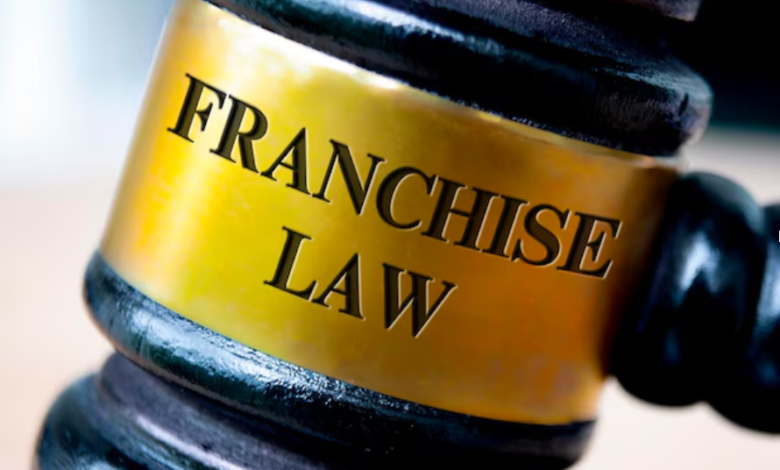What a Franchise Law Attorney Can Do for Your Business—Before You Sign Anything

There’s a moment before signing any major agreement when things feel… off. Maybe not wrong, just uncertain. Especially when it comes to franchising, you’ve done the research, picked the brand, and even scoped the location. But that contract in front of you—it’s thicker than expected, and packed with terms that don’t sound like everyday business language.
This is the stage where a franchise law attorney becomes more than helpful—they become necessary. You might not know it yet, but this early step can save you from years of regret, financial bleed, or legal traps buried in “standard terms.”
People often assume franchise contracts are fair by default. That’s the illusion. The bigger the brand, the more control it holds. Sure, you’re buying into a system, but you’re also agreeing to a structure that rarely bends once it’s set.
Some terms look simple at first glance. Fixed fees. Brand rules. Operational guidelines. But then there’s the fine print. Can you renew on the same terms? Are you responsible for nationwide marketing contributions, even if they don’t help your store? Small clauses, significant consequences.
What exactly happens when an attorney steps in early?
Well, it’s not just red pen edits and jargon translations. It’s more like someone holding a flashlight over things you didn’t even realise needed attention.
- They walk you through the Franchise Disclosure Document
- Not just what’s there—but what’s missing. The FDD outlines the franchisor’s track record, financial health, lawsuits, turnover rate, and support promises. However, the way that data is presented isn’t always honest. A sharp eye can point out patterns that aren’t obvious.
- They question vague or one-sided terms
- Some agreements restrict your right to open another business—even after the franchise ends. Others push you into binding arbitration in a state you’ve never set foot in. A few even reserve the right to change suppliers without notice, forcing you to absorb higher costs.
These aren’t hypotheticals. They’ve happened. Repeatedly.
Beyond the documents
Franchisees often forget they’re entering a relationship, not just a business deal. It’s one where the power balance usually tilts hard toward the brand. That’s why attorneys look beyond clauses.
For instance, territorial rights. You might be told it’s “protected.” But is it really? An agreement might say you have a five-mile buffer. That sounds fine until the brand opens a kiosk at the airport just four miles away.
That’s the kind of detail only someone with experience in territory restrictions tends to notice before it becomes a lawsuit.
See also: Hug Pillow Comfort: How the Right Cuddle Pillow Can Transform Your Relaxation Time
Some questions don’t get asked—until it’s too late
- If the franchisor raises royalty fees next year, are you stuck?
- If you sell the business, do they get to approve the buyer—or take a cut?
- What happens if the company folds entirely? Do you keep operating without the brand name?
These are things people often ask after they’ve signed. Sometimes just weeks after. They could’ve been addressed beforehand, but they weren’t.
Can you negotiate any of it?
Here’s where things get tricky. Many franchisors claim their agreement is “non-negotiable.” And sometimes, sure, that’s true—especially with the big names. But not always.
In plenty of cases, adjustments are made behind the scenes. Maybe it’s a tweak in the training schedule. A different payment structure. A change in territory size. You won’t know unless you—or rather, someone on your side—asks.
And here’s something people forget: having an attorney sends a signal. It shows you’re taking this seriously. You’re not just jumping in. That alone can make a difference.
Let’s talk numbers for a second
Legal help doesn’t come cheap. That’s understood. But stack that one-time cost against ten years locked into a contract that drains your profits. Or the expense of a dispute you didn’t anticipate because you missed a clause.
That up-front consultation starts to feel less like a fee and more like insurance.
There’s also the earnings talk.
FDDs sometimes mention income averages. Sometimes they don’t. When they do, the way those numbers are framed can be selective. An attorney who understands how financial performance representations work can spot the difference between median and mean, between gross and net, between sample and actual.
It’s a level of caution that may feel excessive at first. Until it doesn’t.
Last thing to consider
There’s no legal requirement to have an attorney before signing. That’s part of the danger. It’s entirely possible to move forward solo. Lots of people do.
But many come back later, wondering what they missed, why certain obligations weren’t explained, or how they could’ve agreed to something so restrictive.
The answer is simple: no one was there to point it out.
So where does that leave you?
At a fork in the road. One path says: “Trust the process. Sign the deal. Figure it out as you go.” The other says: “Pause. Ask questions. Understand what you’re agreeing to.”
One has a higher chance of success. And fewer surprises.
A franchise law attorney doesn’t guarantee smooth sailing. But they do offer a second set of eyes. And when contracts span dozens of pages and bind you for a decade? That’s more than just helpful. It’s smart.





